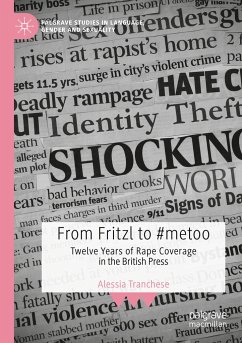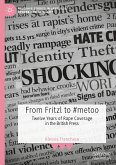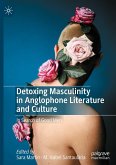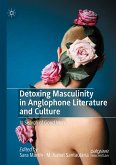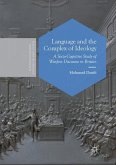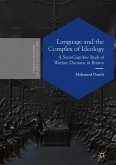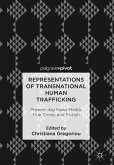This is the first longitudinal study of the language used by the British press to talk about rape. Through a diachronic analysis informed by corpus linguistics and feminist theory, Tranchese examines how rape discourse has (or has not) changed over the past decade. With its detailed investigation of media representations, the book explores how age-old myths about sexual violence re-emerge in different forms within news narratives. Against the backdrop of twelve years of newspaper coverage of rape, including many high-profile cases, this study also traces the rise of "celebrity culture", the emergence of #metoo, and the development of the backlash against it. The author places these historical events and recent trends within broader debates on feminism and the role played by (social) media in shaping contemporary rape discourse. This book provides a much-needed linguistic analysis which will be of particular interest to scholars and students of feminist studies, language and gender, corpus-assisted discourse studies, and gendered crime.
"This book has made me much more alert to the biased language used by the media's reporting on male violence against women. Even those who already possess excellent media literacy and whose feminist lens is clear will learn much from this book and likely develop clearer vision for deep and critical reading of the news." (Emma Dalton, Revista de Lenguas para fines específicos, Vol. 30, 2024)
"Fritzl to #metoo is definitely an important contribution to feminist research and engagement with sexual violence. It offers a nuanced and constructive approach to #metoo beyond the dichotomy of its achievements versus failures. ... Tranchese critically explores the broad sociopolitical context in which #metoo emerged and was disseminated. She highlights the potentialities of #metoo and its interconnections with broader feminist initiatives and agendas ... ." (Júlia Garraio, European Journal of Women's Studies, Vol. 30 (4), November, 2023)
"Fritzl to #metoo is definitely an important contribution to feminist research and engagement with sexual violence. It offers a nuanced and constructive approach to #metoo beyond the dichotomy of its achievements versus failures. ... Tranchese critically explores the broad sociopolitical context in which #metoo emerged and was disseminated. She highlights the potentialities of #metoo and its interconnections with broader feminist initiatives and agendas ... ." (Júlia Garraio, European Journal of Women's Studies, Vol. 30 (4), November, 2023)

